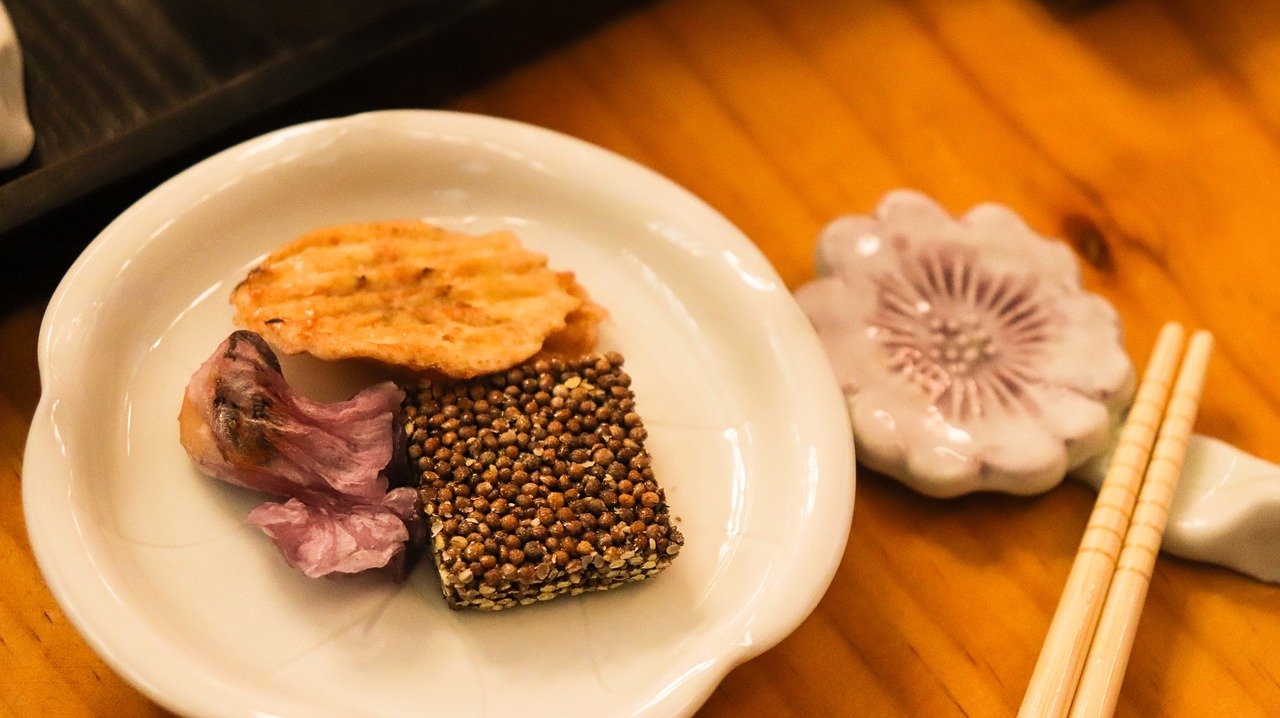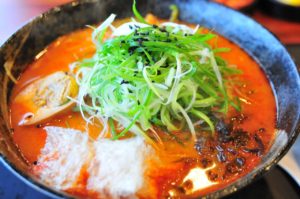Image: allybally4b on Pixabay
In this post we’ll take a look at Korean vocabulary, expressions, and grammar related to talking about what you like, what you find interesting, and what you’re really into doing.
초콜릿을 좋아해요. chokollis-eul jo-ahaeyo. I like chocolate.
If you’re talking about things or people that you like, use the verb 좋아하다 (좋아해요/좋아합니다) jo-ahada (jo-ahaeyo/jo-ahamnida).
- 초콜릿을/ 바닐라를 좋아해요.
chokollis-eul/ banilla-reul jo-ahaeyo.
I like chocolate/vanilla. - 책을/영화를 좋아해요.
chaeg-eul/yeonghwa-reul jo-ahaeyo.
I like books/movies.
- 타이 음식을 좋아해요?
tai eumshig-eul jo-ahaeyo?
Do you like Thai food? - (그는) 버섯을/양파를/마늘을 좋아해요.
(geun-neun) beoseos-eul/yangpa-reul/maneul-eul jo-ahaeyo.
He likes mushrooms/onion/garlic. - (그녀는) 이 노래를 좋아해요.
(geunyeo-neun) i nolae-reul jo-ahaeyo.
She likes this song. - 아이들은 새로운 선생님을 좋아해요.
aideul-eun saeloun seonsaengnim-eul jo-ahaeyo.
The kids like their new teacher. - 이 가수를 좋아해요. 이 가수를 좋아해요?
i gasu-reul jo-ahaeyo. i gasu-reul jo-ahaeyo?
I like this singer. Do you like this singer? - 너의 형을/누나를/친구를 좋아해요.
너의 남동생을/여동생을/친구를 좋아해요.
neo-e hyeong-eul/nuna-reul/chingu-reul jo-ahaeyo.
neo-e namdongsaeng-eul/yeodongsaeng-eul/chingu-reul jo-ahaeyo.
I like your brother/sister/friend.
고양이보다 개를 더 좋아해요. goyang-i boda gae-reul deo jo-ahaeyo. I like dogs more than cats.
If you want to say that you like A more than B, use the verb 선호하다 seonhohada to prefer, or Y보다 X를 더 좋아해요. Y-boda X-leul deo jo-ahaeyo. to like X more than Y. Note that the order of X and Y is reversed in Korean compared to English.
- 초콜릿을 선호해요.
chokollis-eul seonhohaeyo.
I prefer chocolate. - 바닐라보다 초콜릿을 선호해요.
banilla-boda chokollis-eul seonhohaeyo.
I like chocolate more than vanilla. - 고양이보다 개를 더 좋아해요.
goyangi boda gae-reul deo jo-ahaeyo.
I like dogs more than cats. - 개를 선호해요.
gae-leul seonhohaeyo.
I prefer dogs. - 파스타보다 피자를 더 좋아해요.
paseuta-boda pijaleul deo jo-ahaeyo.
We like pizza more than pasta. - (우리는) 타이 음식을 선호해요.
(uri-neun) tai eumsig-eul seonhohaeyo.
We prefer Thai food.
요리하는 것을 좋아해요. yolihaneun geos-eul jo-ahaeyo. I like to cook.
If you’re talking about things that you like to do, use the verb 좋아하다 jo-ahada with the gerund, formed by adding –는 것 -neun geos to the verb stem. But you’ll need to also add the direct object particle.. So “I like to X” is X-는 것을 좋아해요 X-neun geos-eul jo-ahaeyo. You can also use the construction X-고 싶어요 X-go ship-eoyo to express want to X.
- 읽는 것을/여행하는 것을/TV 보는 것을 좋아해요.
igneun geos-eul/yeohaenghaneun geos-eul/TV boneun geos-eul jo-ahaeyo.
I like to read/travel/watch TV. - 외국어 배우는 것을 좋아해요.
oegug-eo baeuneun geos-eul jo-ahaeyo.
I like to learn foreign languages. - 자전거 타는 것을/수영하는 것을/ 하이킹 가는 것을 좋아해요.
jajeongeo taneun geos-eul/suyeonghaneun geos-eul/ haiking ganeun geos-eul joh-ahaeyo.
I like to ride my bike/swim/go hiking. - (그녀는) 아침에 운동하는 것을 좋아해요.
(geunyeo-neun) achim-e undonghaneun geos-eul jo-ahaeyo.
She likes to work out in the morning. - (그는) 일요일에 늦잠 자는 것을 좋아해요.
(geu-neun) il-yoil-e neuj-jam janeun geos-eul jo-ahaeyo.
He likes to sleep late on Sundays. - (우리는) 함께 영화 보는 것을 좋아해요.
(uli-neun) hamkke yeonghwa boneun geos-eul jo-ahaeyo.
We like to watch movies together. - (그들은) 정치에 대해 논쟁하는 것을 좋아해요.
(geudeul-eun) jeongchi-e daehae nonjaenghaneun geos-eul jo-ahaeyo.
They like to argue about politics. - 뭐 하는 것을 좋아해요?
mwo haneun geos-eul jo-ahaeyo?
What do you like to do? - 휴가 때 어디 가고 싶어요?
hyuga ttae eodi gago ship-eoyo?
Where do you like to go on vacation? - 어떤 (종류의) 영화를 보고 싶어요?
eotteon (jonglyu-e) yeonghwa-reul bogo ship-eoyo?
What kind of movies do you like to watch? - 어떤 (종류의) 음식을 먹고 싶어요?
eotteon (jonglyu-e) eumshig-eul meoggo ship-eoyo?
What kind of food do you like to eat?
공상 과학을 정말 좋아해요. gongsang gwahag-eul jeongmal jo-ahaeyo. I really like science fiction.
If you really like or love something, use the construction 정말 좋아해요 jeongmal jo-ahaeyo.
- 개를/고양이를/동물을 정말 좋아해요.
gae-reul/goyangi-reul/dongmul-eul jeongmal jo-ahaeyo.
I love/really like dogs/cats/animals. - 따뜻한 날씨를/눈을 정말 좋아해요.
ttatteushan nalsshi-reul/nun-eul jeongmal jo-ahaeyo.
I love/really like warm weather/snow. - 에티오피아 음식을 정말 좋아해요.
etiopia eumshig-eul jeongmal jo-ahaeyo.
I love/really like Ethiopian food. - 클래식 음악을 정말 좋아해요.
keullaeshig eum-ag-eul jeongmal jo-ahaeyo.
He loves/really like classical music. - (그녀는) 비디오 게임을 정말 좋아해요.
(geunyeo-neun) bidio geim-eul jeongmal jo-ahaeyo.
She loves/really like video games.
이 새로운 식당에 푹 빠졌어요. i saeloun shigdang-e pug ppajyeosseoyo. I’m really into this new restaurant.
Use the construction X–에 푹 빠졌어요 X-e pug ppajyeosseoyo to express that you’re really into X. X-에 미쳐있어요 X-e michyeoisseoyo is similar; it means that you’re crazy about X.
- 이 가게에 푹 빠졌어요.
i gage-e pug ppajyeosseoyo.
I’m really into this store. - (그녀는) 그녀의 새 차에 푹 빠졌어요.
(geunyeo-neun) geunyeo-e sae cha-e pug ppajyeosseoyo.
She’s nuts about her new car. - (그는) 하이킹에/스키에/달리기에 완전 빠졌어요.
(geu-neun) haiking-e/seuki-e/dalligi-e wanjeon ppajyeosseoyo.
He’s really into hiking/skiing/running. - 캠핑에 미쳐있어요.
kaemping-e michyeoisseoyo.
I’m really into camping. - (그는) 오토바이에 미쳐있어요.
(geu-neun) otobai-e michyeoisseoyo.
He’s crazy about motorcycles.
우리 엄마를 사랑해요. uli eomma-reul salanghaeyo. I love my mother.
To talk about loving a person in a non-romantic way, use the verb 사랑해요 salanghaeyo.
- 우리 엄마를/아빠를 사랑해요.
uli eomma-reul/appa-reul salanghaeyo.
I love my mother/father. - 손주들을 사랑해요.
sonjudeul-eul salanghaeyo.
They love their grandchildren. - (그는)여동생을/누나를 사랑해요.
(geuneun) yeodongsaeng-eul/nuna-reul salanghaeyo.
He loves his sister. - (그녀는) 친구들을 사랑해요.
(geunyeo-neun) chingudeul-eul salanghaeyo.
She loves her friends.
사랑해. saranghae. I love you.
The verb 사랑해 saranghae is also used to express romantic love.
- 사랑해
saranghae.
I love you. - 나의 아내를 사랑해요.
na-e anae-reul salanghaeyo.
I love my wife. - 나의 남편을 사랑해요.
na-e nampyeon-eul salanghaeyo.
I love my husband. - 그들은 서로를 많이 사랑해요.
geudeul-eun seolo-reul mani salanghaeyo.
They love each other very much.
언어는 재미있어요. eon-eoneun jaemiisseoyo. Languages are interesting.
There are all sorts of other ways to express that you like something.
- 이 책은 정말 좋아요/ 멋져요.
i chaeg-eun jeongmal jo-ayo/ meotjyeoyo.
This book is really good/cool. - 언어는 재미있어요.
eon-eo-neun jaemi isseoyo.
Languages are interesting. - 책이/영화가 재미있어요.
chaeg-i/yeonghwaga jaemi isseoyo.
Books/films are interesting. - 책이 영화보다 재미있다고 생각해요.
chaeg-i yeonghwaboda jaemi itdago saeng-gaghaeyo.
I think that books are more interesting than films. - 스키는 신나요.
seukineun sinnayo.
Skiing is exciting. - 여행은 매력적이에요. 여행이 매력적이라고 생각해요.
yeohaeng-eun maelyeogjeog-ieyo. yeohaeng-i maelyeogjeog-ilago saeng-gaghaeyo.
Traveling is fascinating. I think traveling is fascinating. - 자전거 타는 것은 재미있어요. (나는) 자전거 타는 것을 즐겨요.
jajeongeo taneun geos-eun jaemi isseoyo. (naneun) jajeongeo taneun geos-eul jeulgyeoyo.
Biking is fun. I really enjoy biking. - 영화는 재미있어요.
yeonghwaneun jaemi isseoyo.
Films are entertaining/interesting. - 이 작가는 대단해요. 그녀의 책들은 대단해요.
i jagganeun daedanhaeyo. geunyeo-e chaegdeul-eun daedanhaeyo.
This writer is amazing. Her books are incredible. - 이 식당은 정말 좋아요. 여기 음식은 정말 맛있어요.
i shigdang-eun jeongmal jo-ayo. yeogi eumshig-eun jeongmal mashisseoyo.
This restaurant is great. The food here is exquisite/delicious.
Learn Korean with the Language Garage
Check out our other posts on Korean language, culture, and more. And if you’re looking for convenient and affordable live Korean lessons with a real teacher, check out The Language Garage. Our lessons are given online in a virtual classroom, so it doesn’t matter where you live or work – we can come to you. And we have flexible options, with a free trial so that you can decide if there’s a fit. Check us out!






